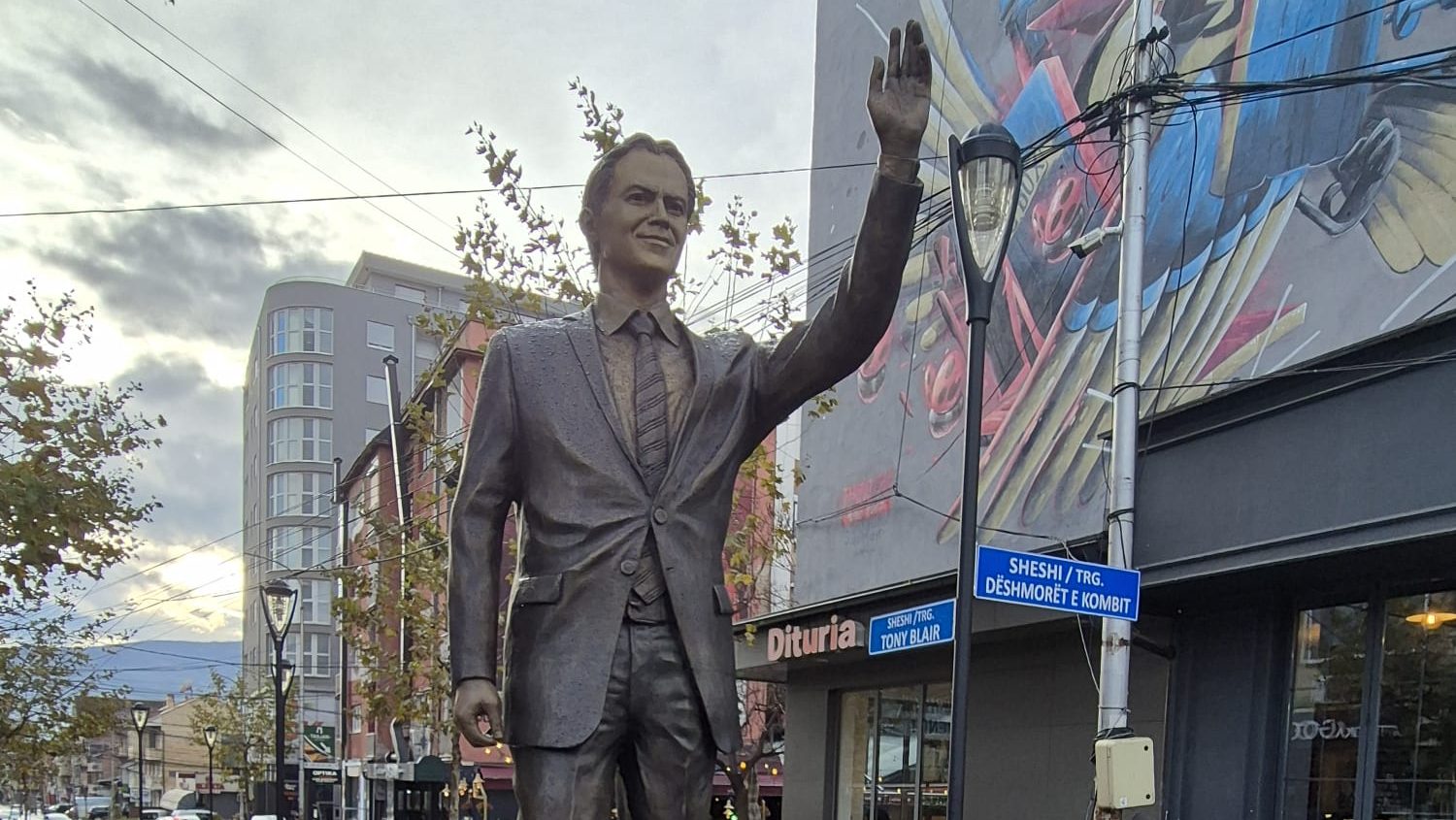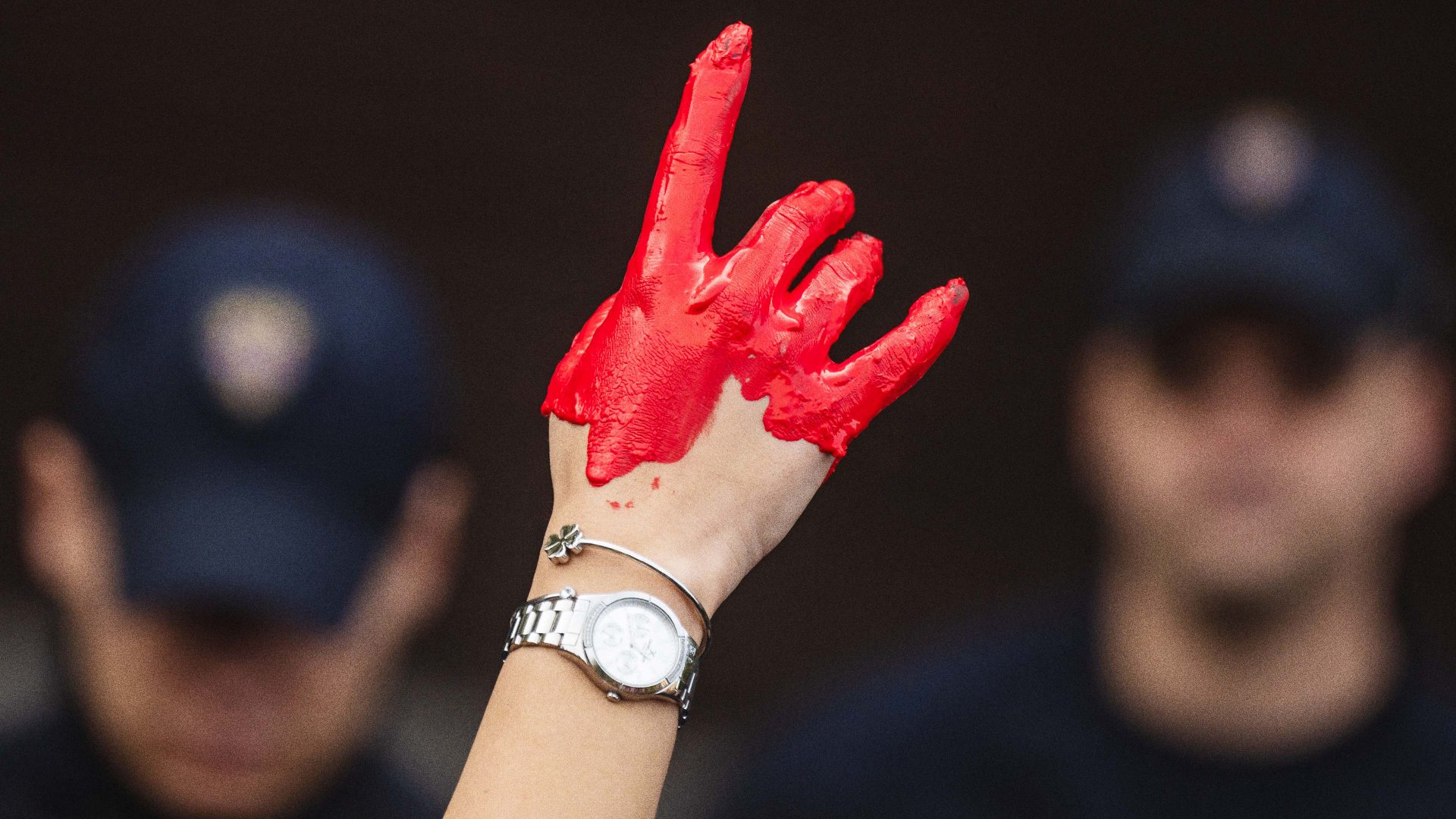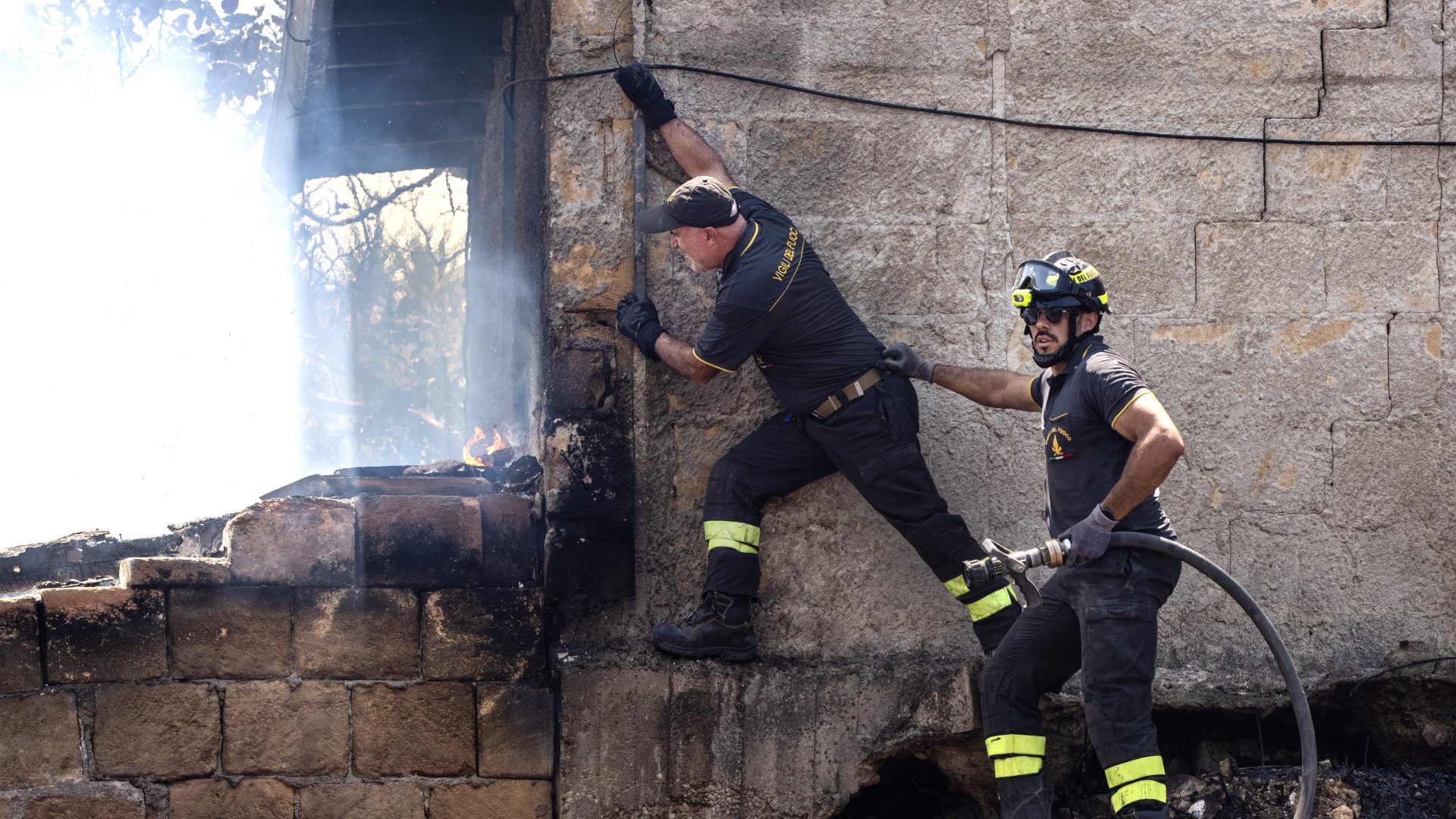On June 12 this year, a statue of Tony Blair was unveiled in Kosovo, the small nation of 16 years’ standing in Europe’s south-east. It may have passed you by. As much as it got any coverage in the British media, it was to note a perceived, and unfortunate, resemblance to the Australian pop star Jason Donovan. But something – maybe it was ‘90s nostalgia in a summer dominated by news of an Oasis reunion? – nagged at me from the moment I heard about it.
I had to see the statue of Tony Blair in Kosovo.
I’d read the many articles on Blair’s veneration in Kosovo, (a worship more understandable than Albania’s adoration of Norman Wisdom). Ethnic Albanians in Kosovo are said to idolise Blair for his leadership role during the Nato bombing campaign in 1999 that halted Serb forces’ advances and ultimately helped the small Balkan nation win independence.
In fact, so popular was Blair said to be that, in the years following liberation, “Tonibler” became a popular first name for boys in the country. Visiting the country in 2010, Blair met nine children named after him. “I hope to God that he grows up to be like Tony Blair or just a fraction like him,” a mother of one, Shukrija, told the BBC at the time. I would, I fancied, link hands with these Toniblers as we skipped around the statue, singing Things Can Only Get Better.
Seeing a statue of Tony Blair in Kosovo, of course, means going to Kosovo which, inevitably, means going to Luton Airport to board a Wizzair flight to Pristina. Not many people on this flight are going to see a statue of Tony Blair, I mused, as the wheels went up over Bedfordshire at 7am.
Searching for the statue in the capital, however, is fruitless. There is one here of Bill Clinton, all 3.4m of it, standing in its own Bill Clinton Boulevard in the centre of the city, and behind it, a huge poster celebrating the 42nd president. A gaggle of tourists, all middle-aged men, took their turn to have their picture taken in front of the statue.
An upmarket women’s clothing store just off the boulevard, Hillary, honours his wife and former secretary of state in a manner she may or may not find fitting. Elsewhere in the capital stands a statue of another former secretary of state, Madeleine Albright, a strong advocate for Nato intervention.
Sir Tony, though, is not to be found in the Kosovan capital. Nor even its second city, the attractive Prizren. No, to find Blair one must venture to the city of Ferizaj, Kosovo’s third-largest city by population – at 109,345 roughly the size of Maidstone or Birkenhead – and an hour or so’s bus journey from Pristina’s ramshackle bus station (€1.50, ticket bought on-board from someone older readers may recall as a “bus conductor”).
Arriving in Ferazaj, I decamp to a cafe for a €1 coffee and a use of their wifi to find directions to Tonibler, combining it with knocking 15 or so minutes off my life due to the fact that smoking indoors not only remains legal in Kosovo but, it appears, compulsory. Tony is but a 10-minute walk away.
I walk through the town centre, down a street which is itself named after general Wesley Clark, the former supreme allied commander Europe, past the clothes stores, burger bars and travel agencies (every other business in Kosovo appears to be a travel agency). And then, finally, it’s there: Sheshi Tony Blair. Tony Blair Square. And at the centre of it, looking on to the high street, is the man himself. Waving.
Left arm aloft, his suit jacket buttoned, Blair stands atop a pedestal saying “Faleminderit!” (“thank you” in Albanian), attributed to the “Foundation ‘We remember Tony Blair’”). To the rear are the words of Albert Einstein – “The world will not be destroyed by those who do evil, but by those who watch them without doing anything”. The quote might be controversial for some Blair-watchers – I’d have gone for “a new day has dawned, has it not?”
Surrounding him are the sights and sounds of Sheshi Tony Blair: an optician, hairdresser, Aroma Doner, an Irish pub, Shamrock, which was shut, and the ubiquitous travel agency. Opposite him, enticing passers-by into an ice cream parlour, stands a fibreglass duck, also sporting a tie and making a waving gesture almost identical to Tony’s. The duck was there first, it seems.
Were there tourists queueing to get their snaps alongside the great statesman? No, just the bored stray dogs that roam the centres of every Kosovan town (the result of uncontrolled breeding and abandonment, but that’s another story). Was I the first person to travel to Kosovo’s third city just to look at a statue of Tony Blair? Almost certainly. Does it look like Jason Donovan? Admittedly, a bit.
And that dream of linking hands with a string of Toniblers, by the way, was always an unlikely one. According to the Kosovo Agency of Statistics, the number of youngsters bearing that name was only ever in the low single figures.




